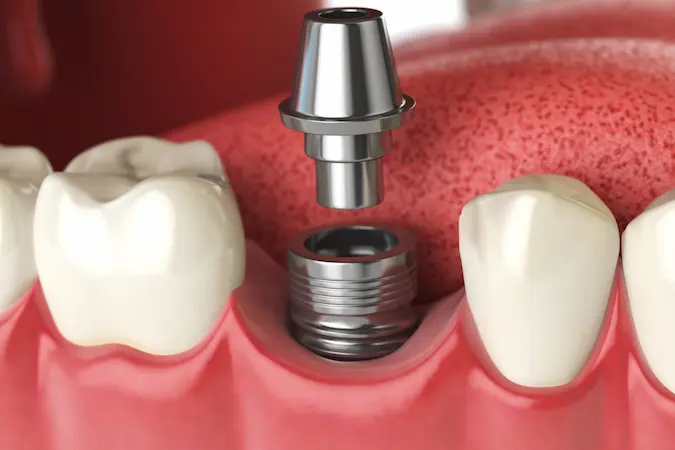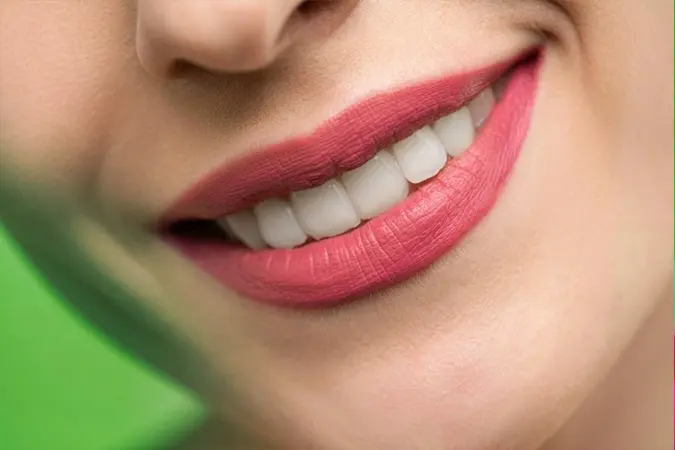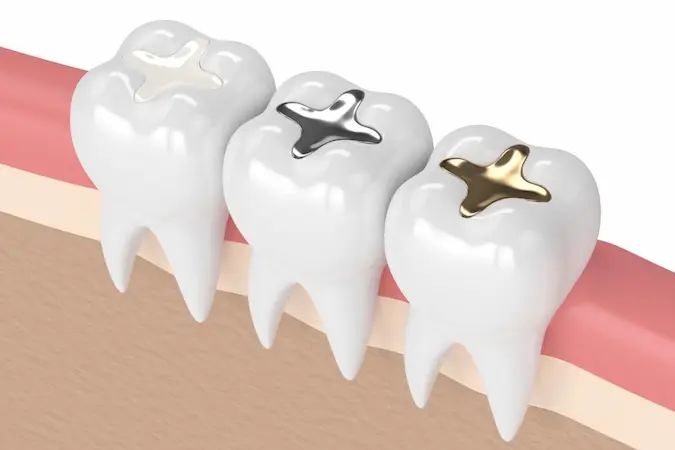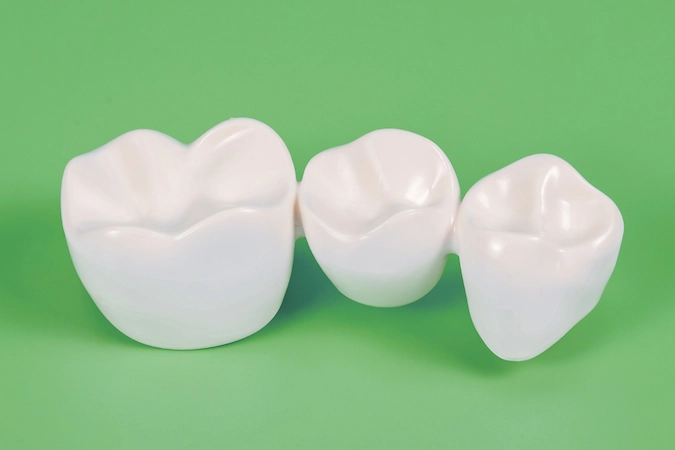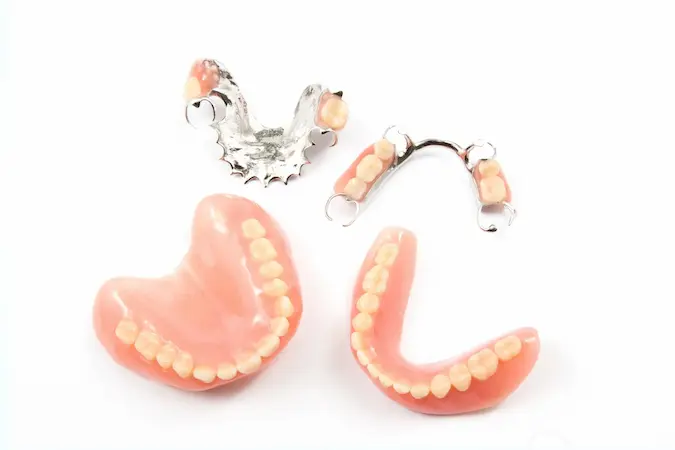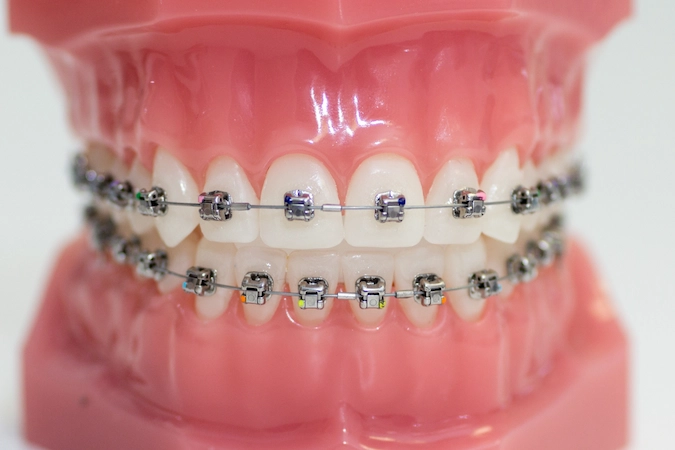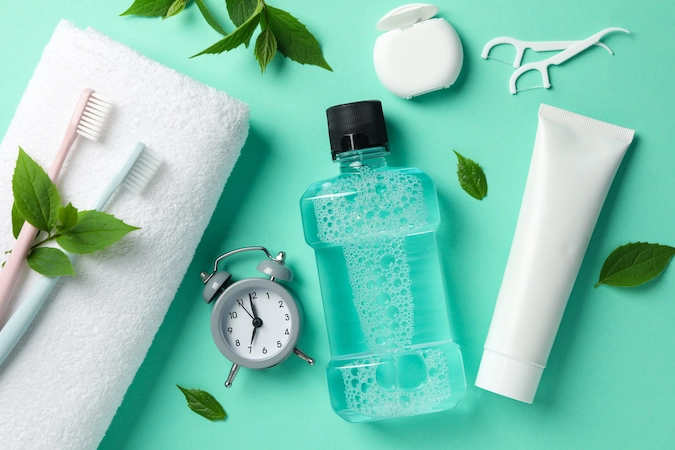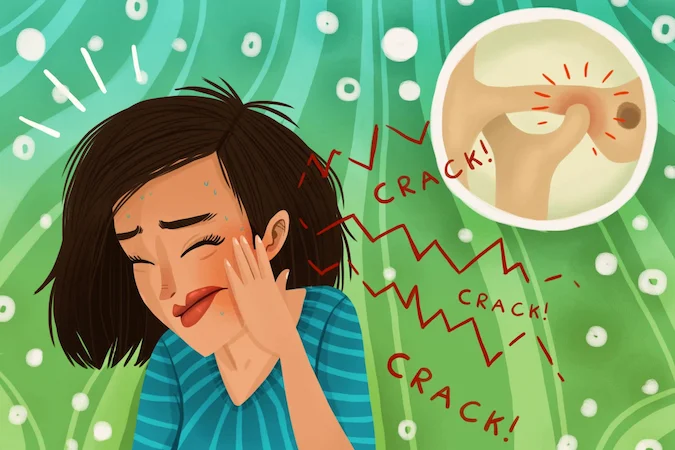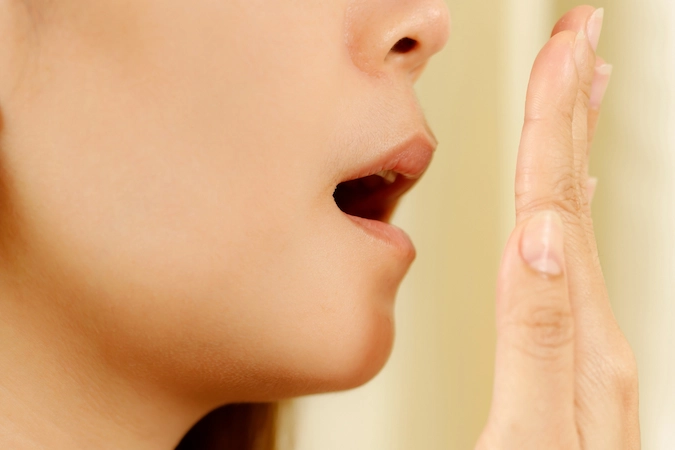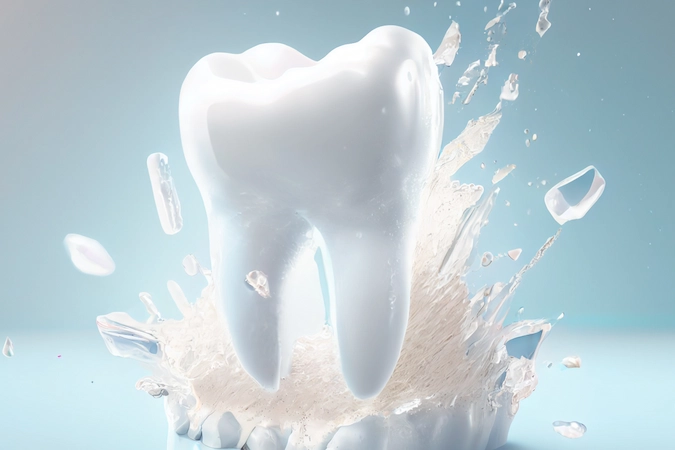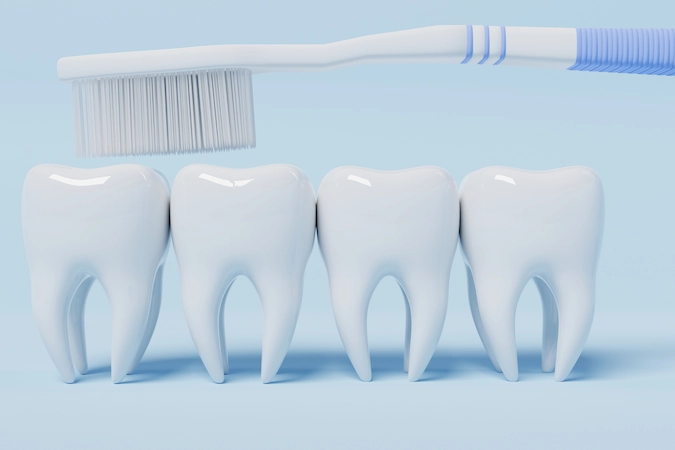Dentra
Dentures
Dentures are removable artificial teeth that replace missing teeth. They require proper care, regular cleaning, and occasional adjustments for comfort and function.
Dentures
Dentures are removable artificial teeth, which are attached to adjacent teeth with clasps or rest directly on the gum. They may be partial dentures, which replace one or more missing teeth through clasping onto nearby natural teeth, or full dentures, which replace the entire upper or lower jaw and are stabilized onto soft tissues and bone.
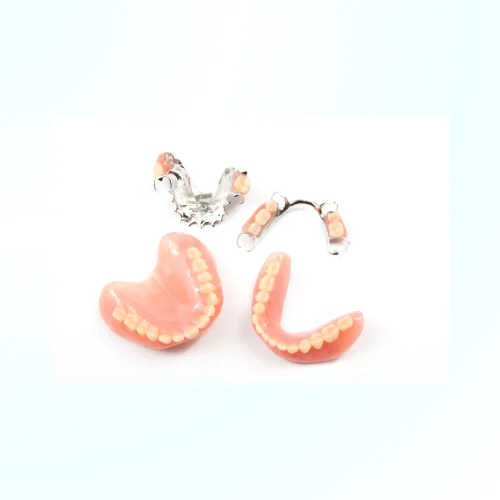
1Will complete dentures make me look different?
Only a little change in appearance is noticeable. Dentures may improve your smile!
2Will I be able to eat with my complete dentures?
Eating will take a little practice. Start with soft foods that are cut into small pieces. Chew slowly using both sides of your mouth at the same time to prevent the dentures from tipping. As you become accustomed to chewing, gradually add other foods until you can return to your normal diet.
3Will complete dentures change the way I speak?
Pronouncing certain words may require practice. Reading out loud and repeating troublesome words will help. If your dentures "click" while you're talking, speak more slowly. You may find that your dentures occasionally slip when you laugh, cough, or smile. Reposition the dentures by gently biting down and swallowing.
4How do I take care of my complete dentures?
- Dentures are very delicate and may break if dropped even a few inches. Stand over a folded towel or a basin of water when handling dentures.
- Dentures must be brushed daily to remove food deposits and plaque.
- Avoid using strong powdered cleansers, which may be too abrasive.
- Avoid using bleach, as this may whiten the pink portion of the denture.
- Ask Dentra for denture cleanser recommendations.
- Dentures may lose their shape if they are allowed to dry out. When they are not worn, dentures should be placed in a denture cleanser soaking solution or water.
- Never place dentures in hot water, which could cause them to deform.
5Can I make minor adjustments or repairs to my complete dentures?
Only your dentist can make adjustments or repair your denture. You can seriously damage your dentures and mouth by trying to adjust or repair your dentures yourself.
6Will my complete dentures need replacing?
Due to normal wear, dentures eventually need to be relined, rebased, or remade. Dentures may need to be replaced if they become loose or if teeth start showing signs of significant wear.
7Does my mouth require special care if I am using dentures?
Every morning, brush your gums, tongue, and palate with a soft-bristled brush before you put in your dentures. This removes plaque and stimulates circulation in the mouth.
8What is an over-denture?
It is a removable complete denture that fits over a small number of remaining natural teeth or implants. The natural teeth must be prepared to provide stability and support for the denture.
9What are implants, and are they good alternatives for dentures?
Dental implants are a perfect solution for all denture malfunctions. Ask your dentist if implants may be an option for you.
10How long will it take me to get used to wearing a partial denture?
Your new partial denture is expected to feel bulky and heavy in your mouth for the first few weeks.
11How long should I wear the partial denture?
Initially, your dentist may ask you to wear your partial denture all the time as it is the quickest way to adapt to it. Afterward, dentures are usually worn throughout the day and taken off at night.
12Will it be difficult to eat with a partial denture?
You may experience some difficulty eating with a partial denture at the very beginning. Start with soft foods that are cut into small pieces. Chew on both sides of the mouth to exert pressure on the denture. Avoid foods that are extremely sticky or hard.
13Will the partial denture change how I speak?
If you find it difficult to pronounce certain words while wearing your new denture, practice saying them out loud repeatedly. Gradually, you will be able to correctly pronounce those words while wearing your dentures.
14How do I take care of my partial denture?
Brush the denture every day to remove food deposits and plaque and prevent permanent staining. Avoid using a brush with hard bristles, which can damage the denture. It's a good idea to stand over a folded towel or a sink of water, just in case you accidentally drop the denture.
15Will my denture need adjusting?
Adjusting the denture may be necessary after some time. As you age, your mouth naturally changes, which can affect the fit of a denture.
For more info, don't hesitate to contact us.

